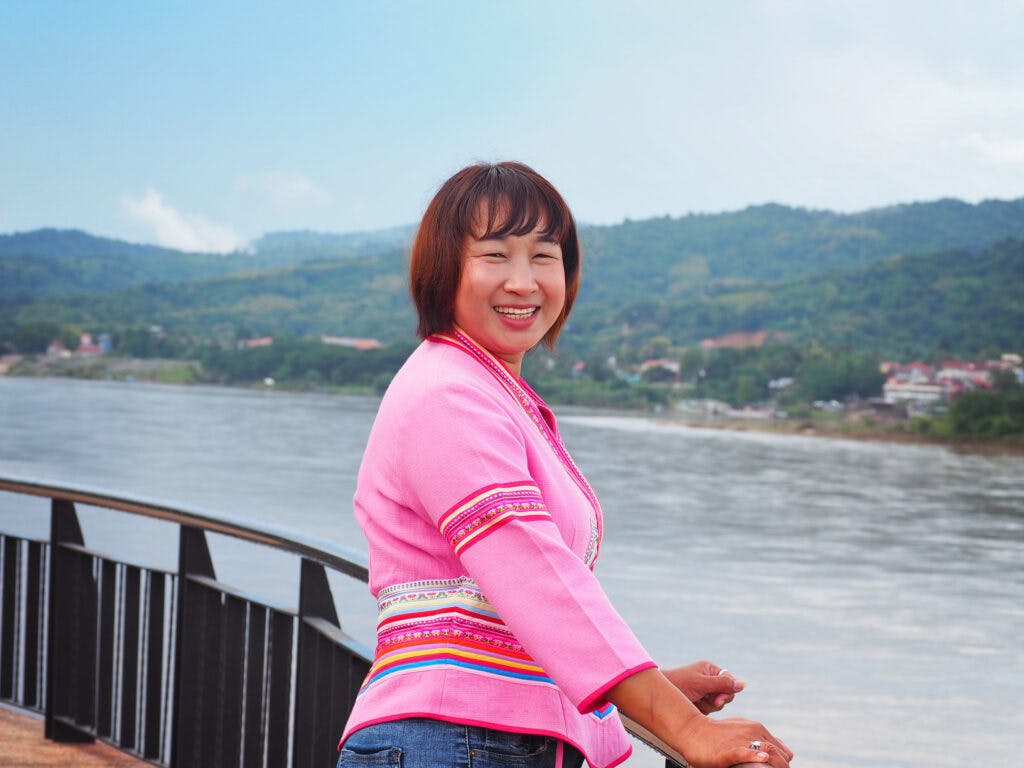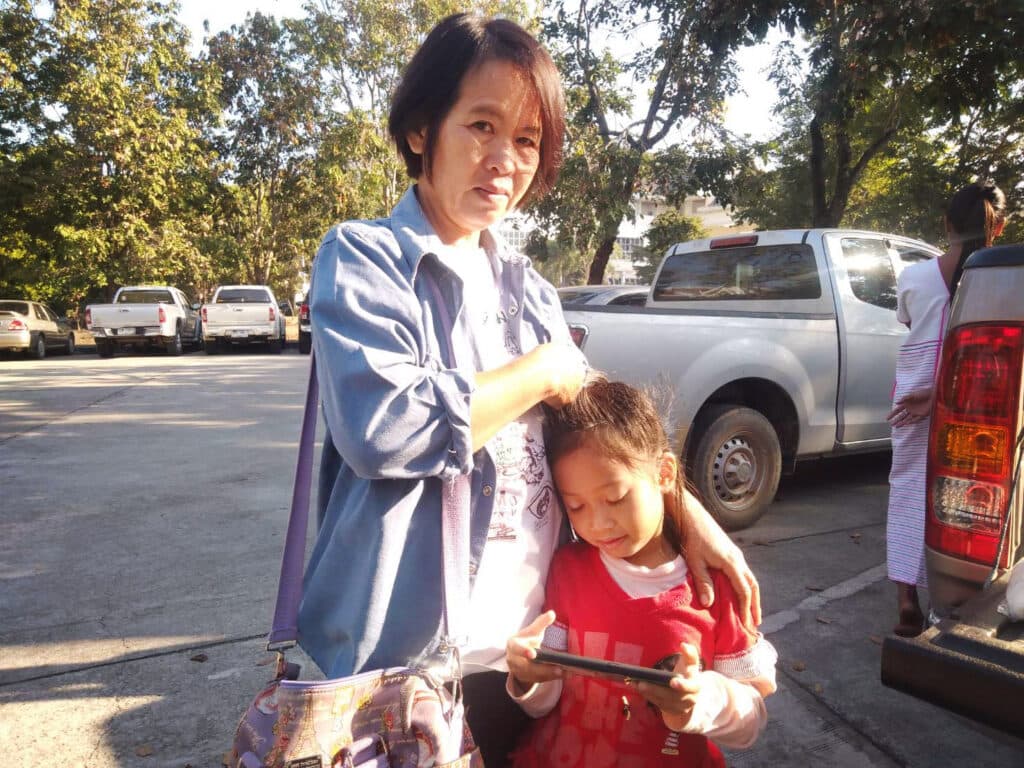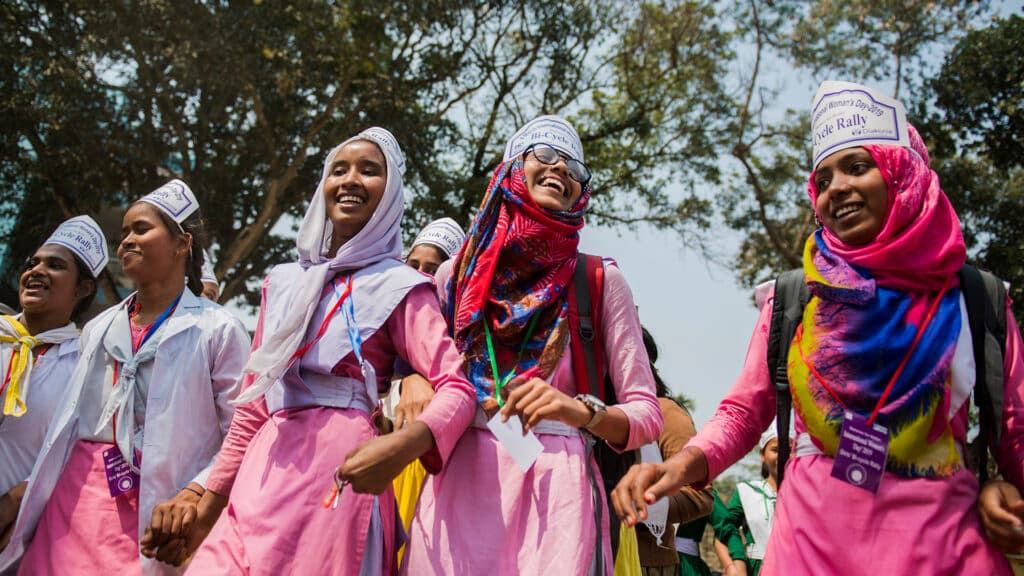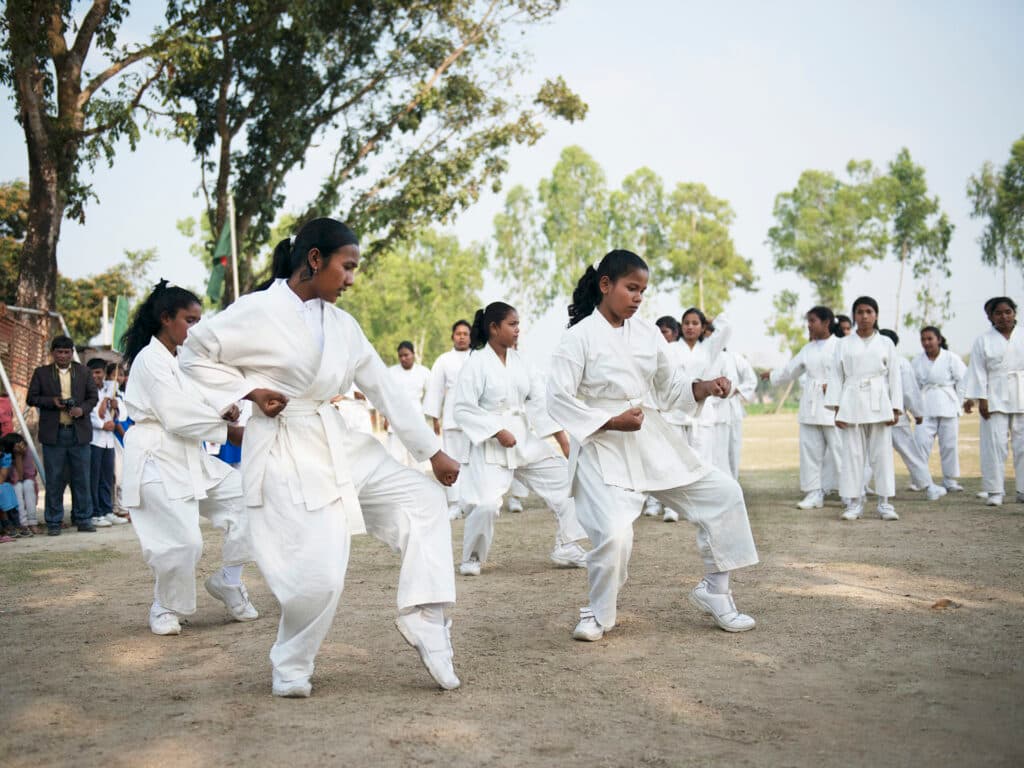
Thailand
In Thailand, Diakonia supports various local partner organizations focusing on the rights of indigenous peoples, minority groups, and migrant workers, mainly in the northern region. Our partners work with indigenous communities, ethnic minorities, and migrant workers on issues related to human rights, social and economic justice, and gender equality.
Thailand has a population of around 66 million, with more than 1 million people in the north belonging to the country’s 46 indigenous and ethnic minority groups. These communities lack political influence, are underrepresented in civil society, and face discrimination and exploitation. They have limited access to higher education, employment opportunities, and healthcare. Without legal status, they are also restricted from traveling freely within Thailand.
The Rights of Indigenous Peoples and Minorities
In Thailand, Diakonia supports local organizations that protect the rights of indigenous peoples and ethnic minority groups, primarily in the northern parts of Thailand. Our partner organizations ocus on human rights, social and economic justice, and gender equality. One key aspect of our work is advocating for stateless individuals’ right to legal status and citizenship, as this enables access other fundamental rights and protections. We also engage in children’s rights, anti-trafficking efforts, gender equality, land rights, and support for migrants along the Myanmar border.
Diakonia is an accompanying partner with a local presence, engaging with our implementing partners through dialogue, funding, and capacity building. We strengthen their ability to demand and defend human rights while enhancing their participation in democratic processes. We also support partners' advocacy efforts at regional and national levels.
B.O.L.D. – Policy Initiative in Thailand
The "Building Organisations & Local actors Dialogue (for) – Policy" (B.O.L.D. – Policy) project, funded by the European Union and implemented by Diakonia in collaboration with the Center for Girls Foundation (CFGF) and The Life Skills Development Foundation (TLSDF), aims to empower Thai Civil Society Organizations (CSOs) in advocating for inclusive and gender-responsive socioeconomic development and governance, emphasizing the voices of women, youths, and children in policy dialogues.
Read and learn more about the project from the factsheet.
Diakonia’s work makes a difference
- Through cooperation with local partner organizations, Diakonia has advanced the agenda of indigenous peoples and ethnic minorities, including women, as well as sustainable development. Significant progress has been made in increasing community participation and in demanding and defending people's rights.
- Many people have received Thai citizenship or other legal statuses to which they are entitled. With the support of Diakonia, partners have empowered volunteers and established networks at the community level, raising awareness about human rights. These networks also provide legal support to individuals subject to human rights violations.
- Women have been empowered and successfully established a women’s council as a mechanism to drive work on women’s issues through their participation. The council carries out activities, including economic empowerment and income generation for the community, raising awareness about women’s rights, monitoring violence against women and children, reducing mental health issues, and decreasing the use of chemicals in agriculture and farming.
- Migrant workers are able to negotiate fair wages and better working conditions, enabling them to have their rights protected. They have formed a network to educate others on labor rights and collective bargaining for fellow workers.
For more information
Bandit Yuenyongtham, Country Director Thailand
E-mail: bandit.yuenyongtham@diakonia.se
Phone: +66 819600461

The Forest as Home for Thailand’s Indigenous People
In northern Thailand, the Karen community of Ban Huai Rai and Huai Ngu is fighting to protect their cultural heritage and secure land rights. With support from Diakonia through the Northern Development Foundation (NDF), they have achieved critical milestones, including the designation of Cultural Protection Zones, blending traditional wisdom with modern advocacy to safeguard their way of life and the forests they call home.

Indigenous Voices Shape Thai Bill
Sakda Saenmi adjusted his traditional Lisu collar as he entered the towering Parliament building in Bangkok, a world away from his misty mountain home. As the Secretary-General of the Council of Indigenous Peoples in Thailand (CIPT), senior staff member of Inter Mountain Peoples’ Education and Culture in Thailand Association (IMPECT), and now a committee member reviewing the draft Indigenous Peoples in Thailand bill, he had made this journey countless times.

Breaking Chains, Building Dreams
Born in a small village in the North of Thailand, Ms. Prakairat Tandee faced the harsh reality of gender inequality from a young age. Through the support of the Center for Girls Foundation (CFGF) and Diakonia, Prakairat was able to break free from the chains of gender stereotypes, becoming a pioneering female leader in her community.
“The training transformed my perspective and actions. Women can do it. Women can create change”, says Prakairat.

Defending Indigenous Rights
As part of Diakonia’s mission to create sustainable change for the most vulnerable people, we support initiatives such as the Strengthening Solidarity and Capacity of Local Leaders to Advance Indigenous Rights in Thailand (SCLAIR).
In partnership with the Indigenous Peoples’ Foundation for Education and Environment (IPF), we have empowered dedicated Indigenous Peoples Human Rights Defenders like Piboon Thuwamonthon to safeguard their community’s rights and traditions.

Reshaping Women's Lives in Chiang Khong
From Seaweed to Strength
Nestled in the heart of the Chiang Khong district in Northern Thailand, a group of women has found an unlikely source of empowerment – collecting freshwater seaweed.
“When I joined the group with other women in my village, I felt confident and empowered”, says Chutikarn Rattanatrai, one of the female Kai collectors.

Advocating for women's and girls' rights
Exclusive interview with Nunnaree Luangmoi
Nunnaree Luangmoi is the Co-founder and Director of the Center for Girls Foundation (CFG), one of the partners of Diakonia in Thailand. Her tireless efforts to provide girls and young women with access to education, training, and support have empowered them to become confident and successful individuals, breaking down barriers and overcoming discrimination.

Fight for land rights in Thailand
Saengduen Tinyot plants rubber trees for a living, but her life changed when she was prosecuted for illegally cultivating land.
Saengduen’s case is an example of how the government uses the green and environmental discourse to justify their unfair policy, says the organization People’s Movement for a Just Society.
The needs for conservation and human rights should not be kept separately.


